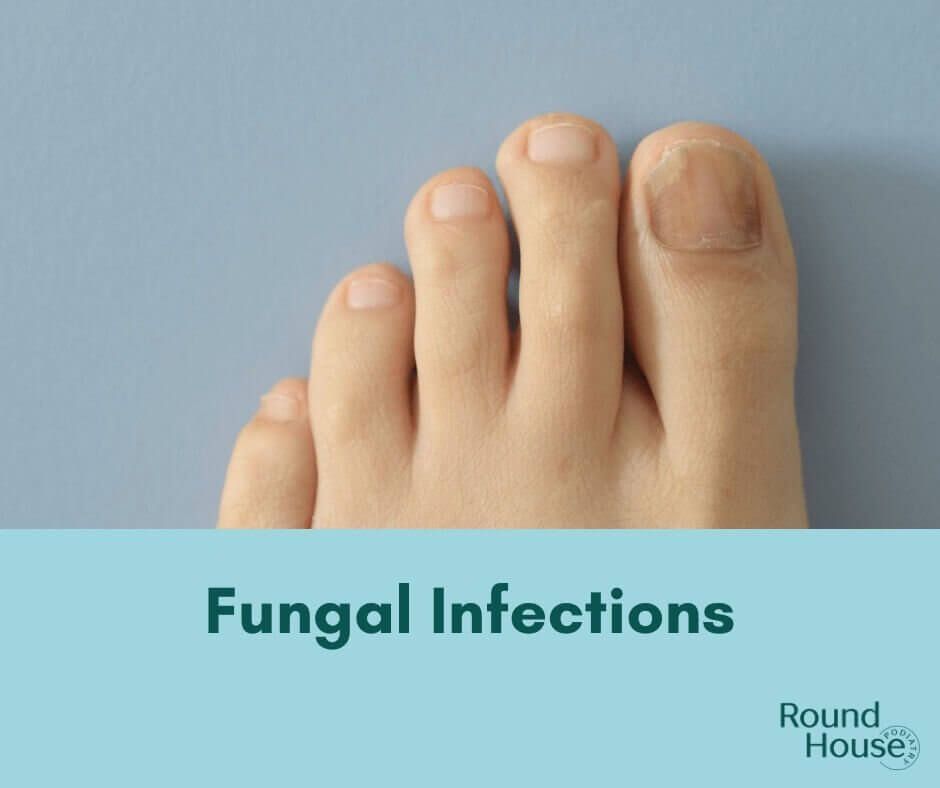
Fungal Infections and Feet
Athlete's Foot - Not just for athletes!
One of the things that we see all the time in foot and ankle clinic is fungal infections, otherwise known as Athlete's Foot. It's a really common condition. There are studies that have shown it can affect up to 70% of the population at some point in their lives. It's something that we see on a daily basis in clinic.
A fungal infection can affect the nails as well as the skin. When you have an infection in the nails, it's normally come from a skin infection first. This then gets into the skin surrounding the nail and underneath, in the nail plate.
Your nails and your skin are both made of keratin and this is what the fungus feeds on. It can affect both skin and nails, quite often at the same time.
Do fungal infections itch?
Fungal infections don't always itch. It's a misconception really, that athlete's foot is that itching sensation that you get in between your toes. If you have chronic dry or reddened skin, or even an itch that only happens at nighttime, then it can be a fungal infection. There are other conditions that can mimic an infection, such as eczema, psoriasis, dermatitis. Getting the right diagnosis is the key, so always see a Podiatrist. We can test skin samples in clinic in five minutes. We can look at the skin as a whole, and can advise you on creams to manage dry skin conditions that aren't fungal infections. But getting the right diagnosis for any skin condition is the best starting point.
What can I do about it?
If you're treating a fungal infection, then you will need a whole regime to manage it. Treating the skin is one point, but it doesn't stop there. If your nails are affected, there are different types of treatment for nails depending on how severe the infection is. A podiatrist can advise you on which is the best course for you. You'll also need to treat socks and shoes, towels, anything that your feet come into contact with to prevent any reinfection further down the line.
If you've got any concerns about your feet, or if you suspect that you might have a fungal infection, it's always a good idea to see a podiatrist. We can take a look at the skin and we can give you a treatment regime to help manage a nail or a skin infection.
Book online to see us now if you have any concerns about your feet.
Frequently Asked Questions (FAQs)
Anna Conway
BSc (Hons), MCPod, SRCh, PGcert Podiatry
Owner, Lead Podiatrist


[…] Fungal Infections and Feet. […]
[…] see a whole range of other skin conditions too, you can visit our blog on Althete’s Foot to find out about just one of them! We’re always happy to advise and provide expert treatment for […]
[…] Read more about skin conditions in our blogs here […]